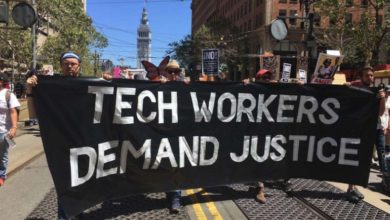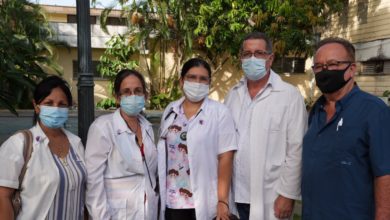In January 2020, before the pandemic, U.S. life expectancy had risen for the first time in four years. In stark contrast, data released yesterday by the Centers for Disease Control and Prevention shows that life expectancy then dropped by a full year by June of 2020 — a complete reversal of the trend reported in January, in a span of time that included only the first six months of the year and only the first four months of a now 11-month-long pandemic that has no end in sight.
This massive drop in life expectancy is the largest decline seen since World War II, and when broken down by race the disparities are even more stark — the life expectancy of Latinos dropped by almost two years, and that of Black Americans by almost three. These numbers are staggering in-and-of themselves, but they only reflect data that is early and partial. Additional study of those six months could still yield information that shows the decline to be more significant than it already is, and this data does not take into consideration the other eight months of the pandemic.
In another sign of how dire the situation has become, the Department of Labor announced today that weekly new unemployment claims have seen a sharp uptick. In the last week there were over 861,000 new claims, which was an increase from the week prior, and also surpassed the anticipated figure by 100,000. When applications to the standard system are combined with the emergency Pandemic Unemployment Assistance claims, which also spiked in the last week, we see total initial claims rise to 1.4 million, with 4.5 million continuing jobless claims.
Initial claim numbers have not significantly decreased in several months, with the number of claims holding steady at several times higher than the pre-pandemic average. There is little sign of the recovery promised by politicians.
These numbers make it even more clear: The lack of substantive pandemic relief is disproportionately impacting those members of society who work in the paradoxically low-paying essential jobs, and the workers who are impacted are overwhelmingly Black and/or Latino. It also shows the clear interplay COVID-19 has with other long-term conditions, including heart and lung disease, cancer and the risk of stroke — some of the same causes of death that had started to see a decrease before the pandemic.
While poor and working-class people have been losing their jobs and dying throughout the course of the pandemic, the rich have continued to get richer through exploitation of workers and massive government assistance. While almost six million workers filed for unemployment in the last week, over the course of 2020 the ten richest men in the world increased their hoard of wealth by $540 billion.
The main priority of the ruling class has always been increasing their own profits, rather than meeting the needs and protecting the lives of the hundreds of millions of working people in this country. That fact is made painfully clear by the unbelievably steep life expectancy drop that happened within the first months of the pandemic, as well as the unemployment claims that continue to spike.
In order to even begin to mitigate the vast damage done by the criminal lack of protection or relief for workers, we need an immediate expansion and indefinite extension of the current unemployment benefit enhancement set to expire in mid-March. However, so much more is also badly needed. The start of real relief for working people means rent and mortgage cancellation, a guaranteed income and universal health care at a minimum.






